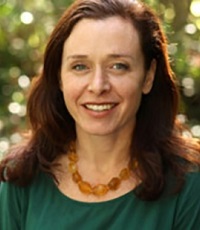While many organizations had been adapting to VUCA environments (Volatile, Uncertain, Complex and Ambiguous), the advent of the disruption resulting from the Covid-19 virus has virtually obliterated many strategic and sales plans. Leading edge decision models must evolve to incorporate game theory, divergent thinking, stakeholder risk assessment and alternative future scenarios.
Silicon Valley Executive Education announces a free, live, one-hour online workshop:
Employing Divergent Thinking in a Crisis
May 29, 2020, 2:00pm PDT
Participants will engage in interactive scenario planning, led by elite faculty, covering:
• divergent thinking
• strategic prioritization
• stakeholder behavior forecasting
• external factor ranking
• customer risk adoption
Due to the intensity of the workshop environment and the live interaction with faculty, participation is extremely limited. For more information, contact Robert David ([email protected], 925-202-6554)
Faculty

Whitney Hischier is a lecturer at U.C. Berkeley’s Haas School of Business, where she served as Assistant Dean for Executive Education for nearly a decade. Prior to coming to Berkeley, Hischier served as a consultant with KPMG’s telecommunications practice and with Deloitte. She has taught business courses around the world and helped a number of major global corporations develop in-house executive education programs.

Steve Rotkoff is a lecturer at UC Berkeley’s Haas School of Business and former director of the U.S. Army’s University of Foreign Military and Cultural Studies at Fort Leavenworth, also known as “Red Team University.” After serving as a senior intelligence officer during the invasion of Iraq, Rotkoff led the “lessons learned” team at the Pentagon that first developed the idea of decision support red teams for the Army and went on to help create the Army’s red team training curriculum. A graduate of West Point, Rotkoff had a distinguished 26-year career as an Army intelligence officer.
